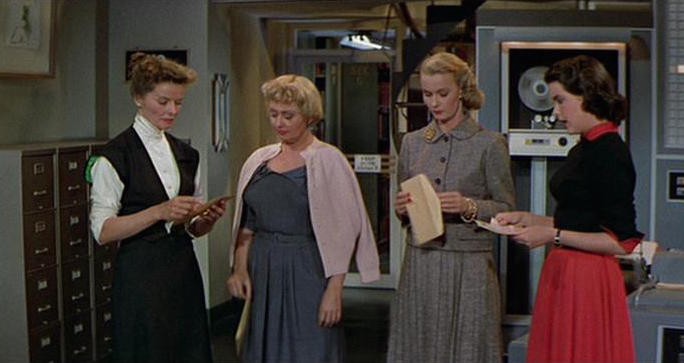Grad School, Two Ways
by Emma Lawson

I had no idea what I wanted to do after finishing my undergraduate education, which I spent studying linguistics for four years. This was obviously not going to get me a practical job. The linguistics department at my school was very small and by the time you reached final year, you were sharing classes with grad students. Based on that, I had a sense of what the graduate program was like, and I had supportive professors, so I applied to the MA program in linguistics and a fancy government-sponsored research scholarship.
At the same time, I also applied to two library studies graduate programs. I had been working at one of the university libraries since my second year of college, and it opened my eyes up to a whole world of work I had never considered. I spent most of my time in the library shelving books and packing them up into boxes, but honestly, I sometimes preferred that to my classes.
I was accepted to all of the programs I applied to, and I managed to score the fancy government-sponsored scholarship too. (Pro tip: say that you’re going to be researching an unstudied or understudied language and you’re almost guaranteed to get some money.) The MA program was an academic program with guaranteed funding through research and teaching assistantships, grants, and the fancy scholarship, which meant that the university and the government would be paying me to go to school. It wasn’t much, but just enough if I stayed frugal and continued living at home, like I had been throughout my undergrad years. The library studies programs, on the other hand, were professional degree programs. I would be responsible for the cost of my education, with the expectation that any debt I accrued would be worth it because the degree would get me a high paying job. (Law school and medical school are the classic example of professional programs, but lawyers and doctors definitely make way more money than librarians do.)
The MA would only be one year. “What’s one year of my life?” I thought. Especially if I was getting paid to do it? Plus all my research showed that if I wanted to end up working in a university library, having an academic MA would only be beneficial. Some universities in the U.S. actually require an academic master’s for their librarians, in addition to the Master of Library and Information Studies. And I figured that if the library schools accepted me the first time, they would probably accept me again the following year with an additional degree under my belt. So I accepted the offer and pursued a master’s in linguistics.
I hated it. Within a month, I knew I had made a bad decision. What I had loved about linguistics as an undergrad was the answers it gave me: I could explain why Americans think Canadians say “aboot,” and why the Toronto Maple Leafs were Leafs, not Leaves. But all the certainty you get when you study something as an undergrad flies out the window once you reach grad school. You’re not learning the answers, you’re creating the answers, and I was way out of my league. I wasn’t up for academia — not really. I realized that I’d much rather be academia-adjacent.
I powered through — it’s one year, right? — but it was a miserable year. I met some amazing people but that doesn’t make up for hating what you’re doing every day, and grad school isn’t like a job that you can stop thinking about when you leave the office. It’s your life, and it’s not over ‘till it’s over.
I applied for library school again, focusing on a program on the other side of the country that offered a co-op program. I was accepted, and even given another scholarship, but much smaller, this time. I applied for student loans for the first time in my life and ended up borrowing just over $28,000 over the course of the two-year program. I flew five hours across the country and put down roots by the ocean. I took indexing classes at 8 a.m., catalogued theses for course credit, assisted students on the reference desk, and learned more about libraries than I realized there was to know.
Library school was a better experience than my stint in academia, but it wasn’t magic. Despite two co-op jobs and student librarian positions, I was still underemployed right after graduation, and then unemployed when that contract ended. My professional degree didn’t save me from needing Employment Insurance benefits for a few months. There are folks I know from library school that are still not working in libraries, five years later.
But somehow, things worked out: I ended up getting a great position, one I’m still in, and I’m happy. And yes, I’m still paying off those student loans.
This story is part of our College Month series.
Emma Lawson is a librarian in Vancouver, Canada. You can read about her surprisingly expensive knitting habit here.
Support The Billfold
The Billfold continues to exist thanks to support from our readers. Help us continue to do our work by making a monthly pledge on Patreon or a one-time-only contribution through PayPal.
Comments